Another Life and the Truth about Torture
“After Nora, Mrs. Alving had to come,” Ibsen says about his own progression from A Doll’s House to Ghosts. Though he anticipated the storm of criticism Ghosts would illicit from all but the most “perspicuous” of critics, not to have written this play, he writes to his friend Georg Brandes, “would have been cowardice.” One reads theatre history for instruction, for solace, and for courage, at least I have always done so. And I felt that same inevitable sense of foreboding as I moved from Prophecy, my play about a talented Iraq War veteran who finally kills himself because what he accidentally did to a pregnant woman in Iraq leaves him unable to control his rage, to the imperative that I write next a play about the US torture program, and its effects on the tortured, the torturers, and the whistleblowers.
That next play became Another Life, opening at Theater for the New City, March 28–April 21, 2013. After hearing the defense attorney Susan Burke speak about her representation of former detainees of Abu Ghraib prison, I contacted her and gained access to hundreds of pages of interviews with some of the hundreds of Iraqis who had been tortured at Abu Ghraib and for whom she is still seeking redress from the private contracting firms that oversaw their torture. I also interviewed Fordham University Law Professor Martha Rayner, who is representing several detainees at Guantanamo, about her many trips to the prison to meet with her clients in shackles. I read books by the experts on the history of torture, including Darius Rejali’s definitive 800-page Torture and Democracy, Torture and the Twilight of Empire by Marnia Lazrig, and Jane Meyer’s account of the Bush-Cheney torture program, Journey to the Dark Side. I read the International Committee of the Red Cross (ICRC) torture report once it was leaked to the press in 2009, (which should be required reading for all Americans). I had previously made a small play with survivors of Pinochet’s torture regime in Chile and I worked for several years for the Oral History Archive at Columbia University, taking testimonies from witnesses and survivors of the 9/11 attacks. My perspective is formed by empathic identification with the victims of extreme violence. I was struck, surely as many people were, by the degradation of public language after the attacks of September 11, 2001.
After hearing the defense attorney Susan Burke speak about her representation of former detainees of Abu Ghraib prison, I contacted her and gained access to hundreds of pages of interviews with some of the hundreds of Iraqis who had been tortured at Abu Ghraib and for whom she is still seeking redress from the private contracting firms that oversaw their torture.
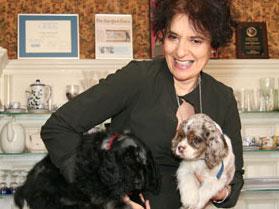
At first, the city was stunned and quiet; within a day street memorials appeared and the first iconic photos were published, those of the “jumpers,” bodies in free fall, looking eerily in flight as they zoomed toward earth. Within days, those victim’s photos had been banished from the press, replaced by heroic images of hard-hatted rescuers and President Bush standing in the rubble vowing revenge. Then, Vice-President Cheney announced our trip to the “dark side” and the new rules allowing euphemistically titled “enhanced interrogation” techniques were quickly put in place. Still not knowing how to begin, I was playing around with language when the voice of a man alone that fateful 9/11 day came into my head. “So, now, once more, Handel left. Handel left by himself. Not to look. Not to look at…End of thing…” He is all by himself in his expansive Soho loft; his younger, trophy wife, a former whore from Chechnya we later learn, has run outside to take photographs (her last burst of freedom before Handel forbids her leaving evermore, on pain of deportation), and as the sounds of the buildings falling reverberate outside, the memory of his immigrant seamstress mother’s suicide by jumping explodes, again, inside his head. But by the end of this long imagistic speech that begins the play, Handel’s language, like Cheney’s and Bush’s, disintegrates into blustery, semiobscene desires for revenge. “We’ll have your eyeballs in highballs. We’ll have your cock in plastic wrap. A stick up your arse. The gloves are coming off. I’ll crush your balls in the palms of my hands. Eat them like olives. You’ll give me what I need, believe me. You’ll tell us what we want to know,” Handel says as he assaults the stateless Arab livery cab driver, Abdul, who has carried his wounded daughter Lucia home that day.
The new language of torture provided a window into the soul of a nation suddenly gone from law to lawlessness—for despite the government’s “extraordinary rendition,” “enhanced interrogation” and indefinite, often secret, detention practices, torture is illegal in US and international law—and became my way into Another Life. Handel creates a prison in his home for Abdul, his new slave, and his wife, Tess (and they form a bond that helps undo him). He also figures out how best to profit from the newly announced global war on terror and founds the private contracting firm Deepwater to oversee “enhanced interrogations” overseas. As Handel profits from the wars, his language becomes increasingly graphic and grandiose. Handel hires David Abbas, a well-intentioned former FBI interrogator who unwittingly becomes caught up in the very torture program Handel assures him Deepwater does not (yet) have. He sends his physician daughter, Lucia, in mourning for the loss of her fiancé on 9/11, to work with Abbas at the Bagram Air Force Base torture site, Afghanistan. The effects of doing torture on Lucia and David Abbas become the other interwoven plot.
There are three factual torture stories in my play chosen because each represents a specific way in which torture has been used in the war on terror: for the purpose of eliciting lies helpful to the cause of launching of the Iraq War; for the purpose of extracting information, whether or not true, and too vague to be acted upon, used to inflame fear in the American public; and torture of the innocent, those thousands of hapless individuals turned in by bounty hunters, swept up in random house searches. Torture was sold to the public, as the current policy of targeted assassination by drones is being sold, as a product of American ingenuity designed to keep us safe. Leaving aside the contested issue of whether or not this could be true (I have seen no creditable evidence that it is) we still must ask if we have the moral right to put into place public policies so obviously repugnant? Is not the theatre a moral place, where the actions of people and their effects on others are to be explored? Or have we slipped so far from classicism, into a sort of solipsistic domesticity, that nothing we do in the public sphere is fit for dramatic commentary or debate? Have we simply lost our ability to contemplate and hold ourselves accountable for actions? In which case, Aristotle’s definition of theatre as action—a movement of the spirit is his final definition of the troublesome word—is completely beside the point.
Have we simply lost our ability to contemplate and hold ourselves accountable for actions? In which case, Aristotle’s definition of theatre as action—a movement of the spirit is his final definition of the troublesome word—is completely beside the point.
In Another Life, and in my plays, generally, though they are most often about extreme events, I have determined that the stage is not a place to reenact violence. In ancient Greek theatre violence was forbidden on the stage; their theatre originated from religious ritual, and the theatre space, in which the chorus still danced and sang around an altar, was considered sacred. My theatre, being modern, has its roots in the profane. Still, certain theatrical imperatives inform my thinking: violence on stage is necessarily pretend. We are not going to harm actors in front of an audience, although I remember a performance art piece from years back in which the performer nailed his foreskin to a table. Such real violence on the stage immediately becomes voyeuristic; but pretend violence is just that, fabricated, enacted, and not true. What is true in the theatre is emotion carried to the audience by language. Imagistic language can conjure the reality of extreme violence far more accurately than pretend physicality. I’m not saying there should never be a fight scene or blood. In Another Life Lucia plays back the final phone messages from Geoff, her fiancé, before he jumps from the burning building. Then she miscarries on stage. Abdul is slapped around by Handel. The techniques of Tess’s confinement become more brutal. But, I am saying that extreme violence, rape or torture, is better spoken of than enacted—and becomes more harrowing, truer to its actual impact on subject, perpetrator and witness.
Language carries this play. Performed without intermission, every scene goes to linguistic extreme. In his long opening memory speech, Handel reflects on his sense, so American, that he has always been completely on his own and so deserves whatever he can grasp and get, including that big contract with the Department of Defense. Tess while she photographs the memorials, meditates on a post-9/11 world in which “if we could open our hearts, then the evil thing would be undone.” Lucia dreams her dead fiancé back into her life for a gentle lover’s spat, establishing a pattern for his reentry at crucial moments—except that having died prewar on terror, Geoff is unable to understand her predicament as physician to the torture program. The deeply religious Abdul courts Tess, a former Chechen whore, with a long linguistic flight, half in Arabic, in the mode of 1001 Nights. Then Handel enters flush with triumph from the new war beginning and demands a blow job from them both. The cumulative rhythms of the scenes, each is different but all are driven by the need to tell what nearly defies telling, gives the play an operatic feel; it lives at the edges of what is possible to say. The moral repercussions on public life of the global war on terror, even though the term has been officially retired, the lethal drone policy of the current administration still carries on this fight, certainly must be fit subject for contemplation in the public seeing place that is the theatre.
What is possible to feel depends, at least in theatre, on what is possible to express. The words, the sounds and bodily shapes carry the essence of emotion. A theatre that does not live at the very edge of sentient expression has the quality of shutting down common feeling; the opposite hopefully is also true: a theatre that stretches boundaries of language and of thought into the uncomfortable and even the forbidden opens the collective heart. The effect of this theatre is to humanize, to deepen the reciprocal relationships between people and between people and the worlds of animal life and nature. It at the nexus of self and other, of self and world, that we find our essential truths and meanings. When we have performed Another Life in workshop we have done so with a surrounding Festival of Conscience, a series of talks-backs with the audience by major voices from the human rights and legal worlds. This coming March and April, our Festival of Conscience will include: Michael Ratner, Director Emeritus of the Center for Constitutional Rights; Ramzi Kassem, Professor of Law at the Cuny-Graduate Center and lawyer for Guantanamo detainees; former Congresswoman Elizabeth Holtzman, author of the book Cheating Justice, about how the Bush administration rewrote the law to protect themselves from prosecution over torture; Karen J. Greenberg, director of the National Security Center at Fordham University, and author of a book about Guantanamo; Victoria Brittain, English journalist, coauthor of the verbatim drama Guantanamo: Honor Bound to Defend Freedom and author of a powerful new book Shadow Lives: The Forgotten Women of the War on Terror; and other distinguished speakers. We want audiences to have an emotional experience, first and foremost, but then be able to discuss their feelings and to learn from human rights and legal experts the truth about the torture program.
We host A Festival of Conscience because we believe the theatre is part of a socially healing continuum in which feelings are engaged and facts confronted. Like those who speak after the play, we believe that democracy is not well-served by lies and that our legacy of torture and illegal warfare must be faced: those responsible should be held accountable, Guantanamo must close, indefinite detention must be ended, and reparation and apology made to innocent victims. We believe a surreal and poetic play can tell the truth about torture and help us to redeem ourselves. For more information about the human rights abuses discussed in this essay and portrayed in Another Life, see “Globalizing Torture: CIA Secret Detention and Extraordinary Rendition.

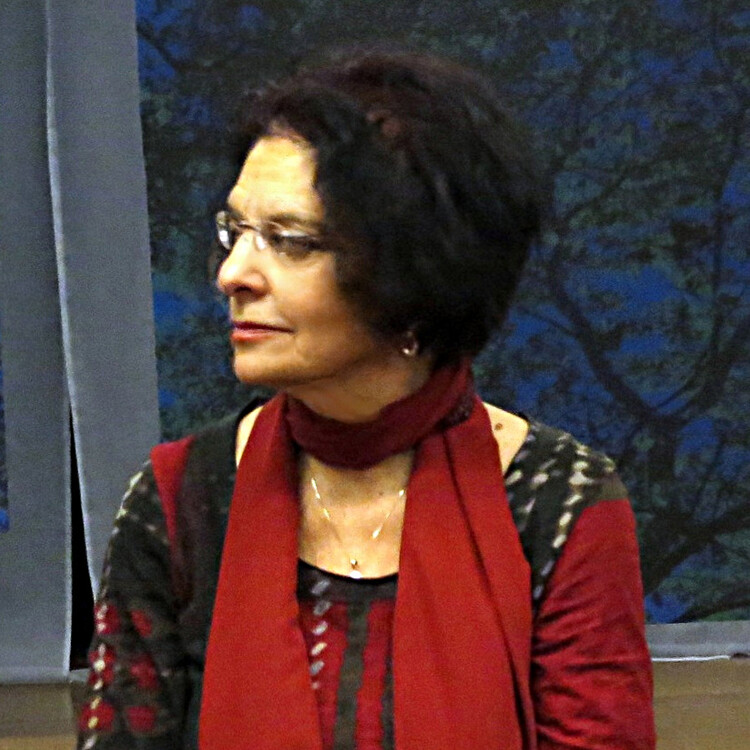
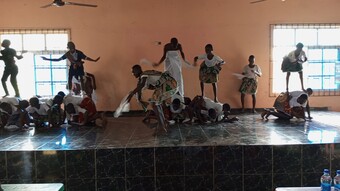


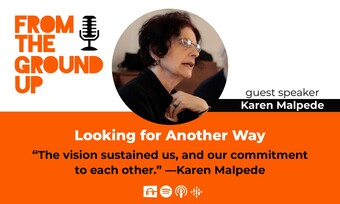


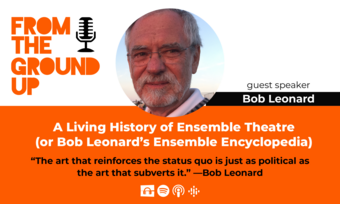

Comments
The article is just the start of the conversation—we want to know what you think about this subject, too! HowlRound is a space for knowledge-sharing, and we welcome spirited, thoughtful, and on-topic dialogue. Find our full comments policy here
Karen, thank you for sharing this work and for having the bravery to write that story. I agree that the theatre should be a space amenable to deep and serious contemplation. Although I haven't had the opportunity to see or read Another Life, from your description I sense that this work is very important. Here's hoping I have the opportunity to see a production in the future!